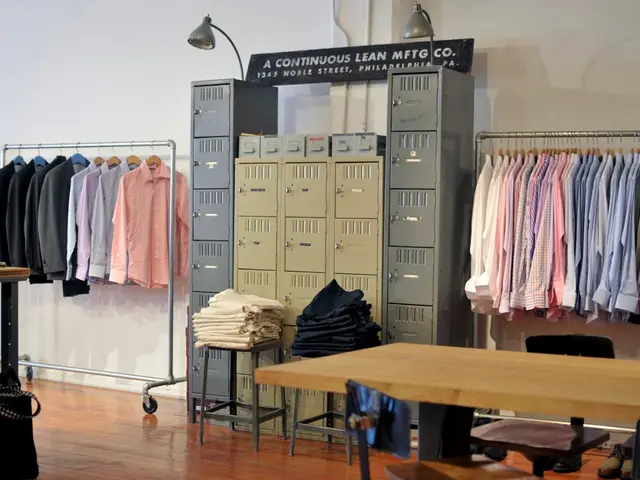Changing the Tides: The Police President's Proposal for Ankle Monitors to Curb Gender-Based Violence
Law enforcement leader calls for implementation of ankle monitoring devices - Officer-in-charge advocates for ankle restraints
Let's talk about the new sheriff in town - Friedo de Vries, the police president of Osnabrück - who's shaking things up with his proposal for electronic ankle monitors for perpetrators of violence against women in Lower Saxony. He believes these devices could be a game-changer in preventing femicides.
In an interview with the "New Osnabrück Newspaper," de Vries shared his concerns about the alarming prevalence of gender-based violence, stating, "We need to shed light on this issue and equip ourselves with innovative tools like electronic ankle monitors to combat violence against women." He went on to mention that this is not just about saving lives; it's also about putting an end to these heinous acts of homicide.
De Vries is rather forthright about the gravity of the problem. He highlighted that this issue isn't confined to certain social classes or age groups; it's everywhere, even among the youth.
So, what's the big deal about these ankle monitors? Well, they're high-tech personal tracking devices that have been used in other regions, like Spain, with success. The idea is simple: if a perpetrator approaches the victim, the authorities are immediately notified. As of now, both Saxony and Hesse have implemented this approach.
Lower Saxony's Minister of the Interior, Daniela Behrens, has announced plans to incorporate electronic ankle monitors as part of the reform of the Lower Saxony Police and Public Order Act (NPOG).
Recent incidents in Lower Saxony underscore the urgency of this proposal. In May alone, three women lost their lives in Lower Saxony - victims of arson, car attacks, and parking lot stabbings. In all cases, the partners or ex-partners were apprehended and charged with murder.
De Vries started his tenure as police president on June 1. Prior to this, he served as president of the State Criminal Police Office since 2018.
Now, let's break it down:
- Ankle Monitors: These small devices track the wearer's movements and are often used in the criminal justice system to enforce restraining orders or ensure compliance with court-imposed conditions.
- Gender-Based Violence: A disturbing reality plaguing society, this form of violence disproportionately affects women.
- Prevention: That's the goal here - to implement strategies that can help eliminate gender-based violence before it escalates to life-threatening levels.
- Osnabrück: A city in Lower Saxony where the police president has taken office.
- Lower Saxony: The German state where these proposals are being considered and where an alarming number of femicides have been reported.
- New Osnabrück Newspaper: The publication where de Vries shared his ideas on the use of ankle monitors.
The proposal to use ankle monitors to combat gender-based violence is a promising one, but it's crucial to consider its effectiveness within the context of Lower Saxony, Germany. Factors like the local legal framework, social support systems, and the potential limitations of these devices need to be taken into account. Stay tuned as we delve deeper into this issue.
- In response to the rising concern about gender-based violence in Lower Saxony, the police president of Osnabrück, Friedo de Vries, has proposed the use of electronic ankle monitors for perpetrators, with the aim of preventing femicides.
- As part of the reform of the Lower Saxony Police and Public Order Act (NPOG), the state's Minister of the Interior, Daniela Behrens, has expressed plans to incorporate electronic ankle monitors to combat violence against women and women's health issues, which fall under the 'general-news' and 'womens-health' categories.
- De Vries, a strong advocate for science and innovation in crime and justice matters, believes that the implementation of these monitors could be instrumental in the upheaval of the community policy and employment policy relating to crime-and-justice and health-and-wellness in Lower Saxony.








